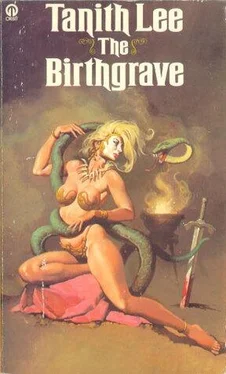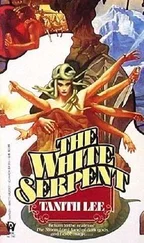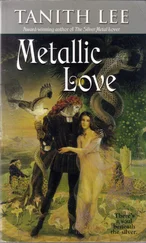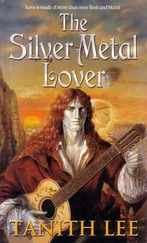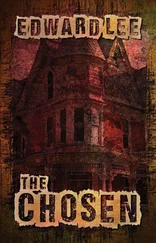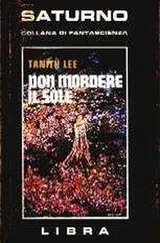Tanith Lee - The Birthgrave
Здесь есть возможность читать онлайн «Tanith Lee - The Birthgrave» весь текст электронной книги совершенно бесплатно (целиком полную версию без сокращений). В некоторых случаях можно слушать аудио, скачать через торрент в формате fb2 и присутствует краткое содержание. Год выпуска: 1977, ISBN: 1977, Издательство: Orbit, Жанр: Фэнтези, на английском языке. Описание произведения, (предисловие) а так же отзывы посетителей доступны на портале библиотеки ЛибКат.
- Название:The Birthgrave
- Автор:
- Издательство:Orbit
- Жанр:
- Год:1977
- ISBN:0-86007-942-2
- Рейтинг книги:3 / 5. Голосов: 1
-
Избранное:Добавить в избранное
- Отзывы:
-
Ваша оценка:
- 60
- 1
- 2
- 3
- 4
- 5
The Birthgrave: краткое содержание, описание и аннотация
Предлагаем к чтению аннотацию, описание, краткое содержание или предисловие (зависит от того, что написал сам автор книги «The Birthgrave»). Если вы не нашли необходимую информацию о книге — напишите в комментариях, мы постараемся отыскать её.
The Birthgrave — читать онлайн бесплатно полную книгу (весь текст) целиком
Ниже представлен текст книги, разбитый по страницам. Система сохранения места последней прочитанной страницы, позволяет с удобством читать онлайн бесплатно книгу «The Birthgrave», без необходимости каждый раз заново искать на чём Вы остановились. Поставьте закладку, и сможете в любой момент перейти на страницу, на которой закончили чтение.
Интервал:
Закладка:
“As much joy as it brought you, goddess.”
“Never call me that.”
“What, then, am I to call you? You say you have no name. No,” he said suddenly, “I shouldn’t be angry with you.”
“You have no right to be angry. You had no right to my mind.”
He looked at me, and again the helpless anger caught his face, then faded.
“Listen,” he said. “One thing I learned; the flame—the creature you saw in the stone bowl, what you call Karrakaz—told you, you would be free, would regain your beauty and your powers, when and if you found your soul-kin, the Jade. If I assured you that the computer holds the solution to that quest, would you do as I told you?”
My heart throbbed thickly. I stared at him.
“How—can it know?”
“Because you know. The answer is in your own mind. But it comes from the time before you woke under the volcano. That time—that short time—is all you have to relive in order to set yourself free forever.”
“I cannot believe you,” I whispered.
“Are you willing to let go by such a chance to find the Jade?”
I turned to him. Hate boiled in me. I gripped his arm.
“You tell me! You know!”
“I can’t tell you. Not until you understand. You must come to the computer.”
I half turned toward the doorway, half ready to go with him. But the unreasoning fear rose and engulfed me.
“The computer,” I repeated. I took one stiff step forward, and my knees melted. I fell, and found I could not get up. I could not move my legs, my feet, my arms or hands. Paralyzed, deadened, I cried out to him in despair. My eyes were almost blind; I could hardly speak. “Karrakaz,” I choked out, knowing now that the Jade lay within my reach, and that, seeing this, the demon of my race had risen to deprive me of it. “Karrakaz will destroy me.”
“No,” he said, though his voice seemed distant and almost meaningless. He had picked me up, but, numbed, deafened, blinded, in an incredible extremity of terror, I could not follow what happened to me, or where he took me, and at last the horrible darkness swept in like the hungry sea, and drowned me, and bore me away into itself, and I was lost.
4
Birth is pain. All emotions of sorrow, fear, and anguish begin in that struggle and rejection. After birth the world is abstract, senseless, yet peculiarly orderly. Nothing is logical, therefore illogicality is rational and sane. Suck, sleep, silences and sounds fill and refill a distorted plane where colors slide on the unfocused eyes. There is no time, yet time passes.
Out of the cloudiness things grew, and took on meaning. White swans moving across glittering water, stretching out their looping necks to be fed. A woman with long pale hair, who led me by the hand through ornate gardens leading to the sea, over the floors of incredible rooms where elegant men and women sat. Sometimes there would be others, large, uncouth, staring, dirty, their bodies brown and scarred. They made me afraid, for they were not like us. Like savage, ugly animals, they haunted the walks, their figures contorted to dig at the beds of flowers. Our slaves.
I must not speak to them, but I did, one, a man slave, axing down a slender tree. I asked him why he did it.
“The tree is diseased, princess,” he said, in the awkward grumble with which they stumbled out our tongue. Then he stared down at me from his great height. His face was hideous, distorted by a pain I could not understand, for he was smiling. “All diseased things,” he said, “must be cut down. And burned.”
His eyes ate their way into mine. Frightened, I backed from him, and in that moment the prince who was my father came. The slave’s face altered to a look of moronic terror. The prince picked me up with one arm. With the other he summoned the four guards who came behind him. Two seized the man and brought him down on his face. Another stripped his shirt. A fourth stood ready, a metal edged whip dripping from his hands.
“Now kill him,” said my father, stroking my hair. “But slowly. My royal daughter must see what happens to all those who dare insult us.”
The whip rose and fell monotonously. The man screamed and flopped and blood wriggled in the grass like snakes. I was glad at first, but soon I grew bored. I looked at my father’s soldiers, and they too were slaves, though, better treated and better clothed, they looked very different. It did not seem to matter to them that they whipped one of their own kind.
Soon the man died, and my father took me away.
Three years and many days of lily-lakes, marble-pillared rooms, entertainments of death and beauty.
Then fear came. At first fear was only a transparent shadow thrown in the distance, a whisper, something hidden behind layers of thought and activity. Then fear grew deeper and closer, and lay inside the mouth, ready to be hinted at and half-spoken.
To begin with, I did not know the fear, only sensed it. I heard the word “plague” and it meant nothing to me. I heard of death, but that I rejected totally. We would live almost forever. Nothing could harm us.
We were not slaves to die from sickness or a wound.
But then, a scarlet dawn, and my mother’s sister screaming and screaming, running through the palace walks naked, her pale hair flaming behind her, an insanity of whiteness against the blood-red sky. Her lover was dead of the Plague, had died lying across her. She had woken to find him, his flesh decomposing against hers. I did not know what was done, but, as the days passed, I came to know, for others died. A pyre was built beyond the lake, and here what remained of them, and of their clothes, was burned. If the corpse was discovered quickly enough, slaves could be sent in to make a cast of the body, and this would be painted and decked in jewels and buried in the owner’s tomb in place of their flesh. But often it was too late for that; the body would already be putrescent. And this was why the Plague was so damaging to us, for nothing would remain to heal itself, not flesh or sinew or any organ, not the brain, not even the bones. True annihilation had come among us at last.
There were no symptoms of the Plague in its victims before they succumbed to the coma, therefore, no warning. And the infection spread like rottenness.
My mother died. I could not understand why she should leave me. I was terrified, and wept with terror, not sorrow, as I walked behind her jeweled bier—empty, for she had been too quick for them. I stared at the painted pictures of her tomb deep in the vaults of the palace. The sleeping woman-shape under the mountain with its sky cloud, which was the symbol of birth and of the planet which supported it; the woman with her guard, and rods of office, a symbol of her temporal power; the woman holding the knife toward herself, symbol of her final acceptance of death. I hated these terrible paintings—the same in every tomb, save that in a man’s sepulcher a drawn man would replace the woman in them. I hated the traditional jade set in at the face, as though death had made my mother faceless.
My father came to me at dusk. The low lamplight picked out the small luminous triangle of green above and between his eyes, as he leaned toward my bed.
“Tomorrow you must be up early,” he said. “We are going on a journey.”
“Where?”
“To a place, a place underground, a temple. We shall be safe there.”
The summer too was dead, and rains and winds blew across the land as we traveled from the northern shore. Drifts of bronze leaves stagnated on the rivers and the lakes.
Members of other great houses came with us. The slaves drove our wagons, put up our tents at night, and saw to our needs much as they had done in our palaces. None of them took the Plague, nor did they seem to fear it. Only one man tried to run away. From my wagon flap I watched him blunder on spindly legs across the harvested fields of some village. One of the princes turned and looked hard at the running man. The man fell immediately, and did not rise. The power to kill had not come to me yet, nor the power to levitate my body from the ground. The slaves watched in terror any of us who did this; in their own abominable tongue they called us the Winged Ones, imagining we must have invisible wings, and that we flew.
Читать дальшеИнтервал:
Закладка:
Похожие книги на «The Birthgrave»
Представляем Вашему вниманию похожие книги на «The Birthgrave» списком для выбора. Мы отобрали схожую по названию и смыслу литературу в надежде предоставить читателям больше вариантов отыскать новые, интересные, ещё непрочитанные произведения.
Обсуждение, отзывы о книге «The Birthgrave» и просто собственные мнения читателей. Оставьте ваши комментарии, напишите, что Вы думаете о произведении, его смысле или главных героях. Укажите что конкретно понравилось, а что нет, и почему Вы так считаете.
